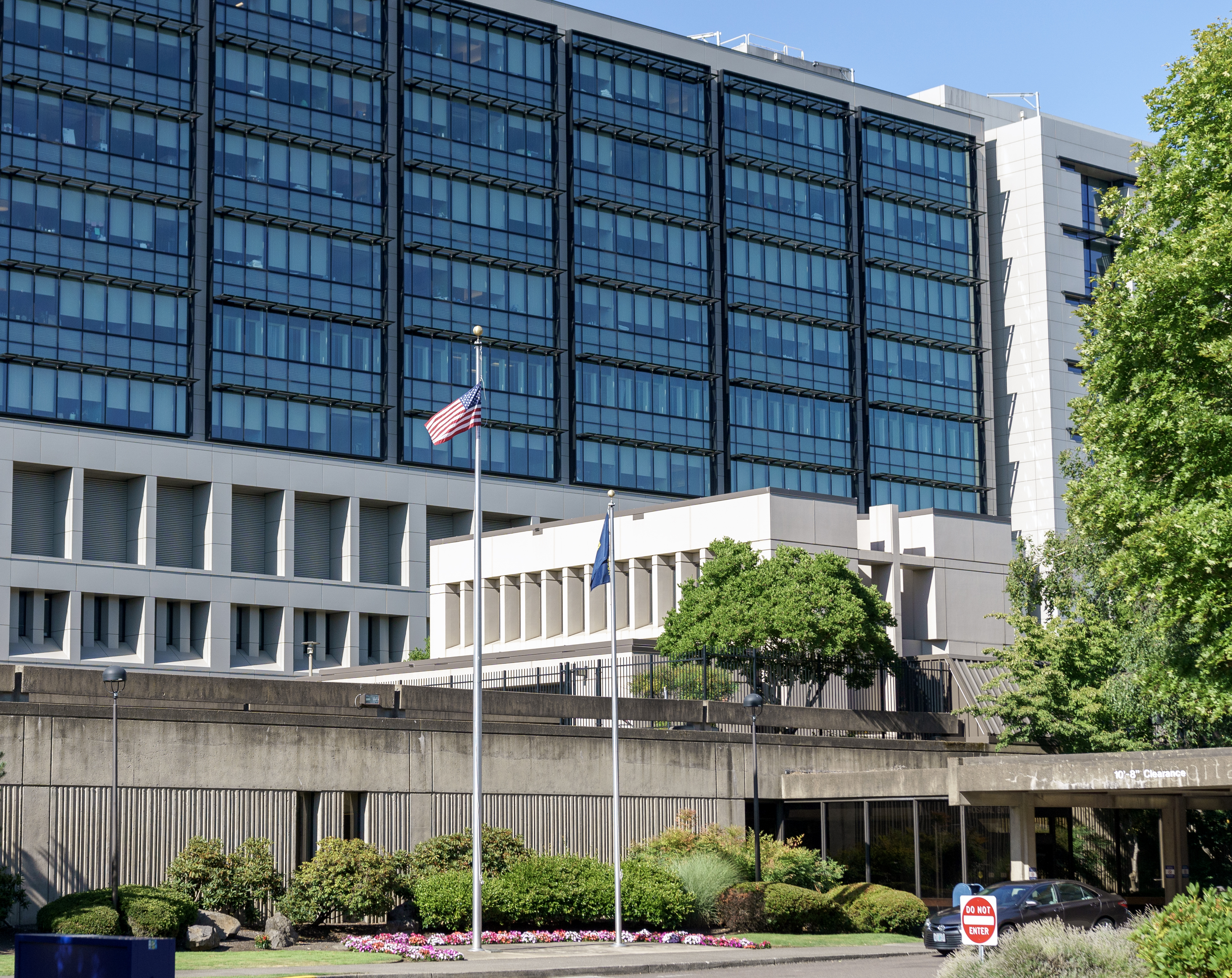
The walkout would include physicians, physician associates, nurse midwives and clinic nurses at six Providence Women’s Clinics in the Portland metro area and Providence St. Vincent shown here in this Aug. 2, 2023 file photo.
Kristyna Wentz-Graff / OPB
Doctors and nurses at Providence facilities in Portland have authorized a strike amid ongoing contract negotiations.
The walkout would include physicians, physician associates, nurse midwives and clinic nurses at Providence St. Vincent and six Providence Women’s Clinics in the Portland metro area.
Physicians are represented by the Pacific Northwest Hospital Medicine Association, and nurses by the Oregon Nurses Association. According to the nurses union, about 150 staff would be impacted in the walkout, and it would be the “first doctor’s strike in Oregon history.”
Negotiations for staff at the Women’s Clinics have been ongoing since November 2023, and hospitalists at St. Vincent have been negotiating since last January. Some of the central issues are recruiting and retaining staff, staffing levels, and wages and benefits.
In June, more than 3,000 Providence nurses across the state went on strike for several days over similar issues, including paid time off and the cost of health care benefits.
Jeremiah Wright, a nurse practitioner at St. Vincent, joined the bargaining team in April. He said, since then, most of the sessions have been bogged down by conversations about basic contract language.
“It’s tiresome, we’re feeling like we’re not respected, like we’re being treated like cheap labor and we’re the health care professionals that are taking care of the sickest people in our community and just want to make sure that they get the care that they can in a safe way,” Wright said.
“All of us experience role strain and sort of having to provide the basic necessary care in a timely fashion when sometimes it’s near impossible,” he said. “I mean, if we have available beds many mornings, we aren’t able to get those patients admitted because we just don’t have the human capital to provide their care.”
Officials at Providence said they’ve been focusing on the contract language because these are the initial bargaining agreements for these units.
“It‘s not uncommon for that to take 16 to 18 months. We‘re pretty clear about that from the beginning. We’re about halfway through that process,” said Providence CEO Dr. Benjamin LeBlanc.
“You‘re starting from scratch, so there’s language around dues and union membership, what are management rights, discipline, all those types of things need to be worked out through this negotiating process,” he said.
In terms of the potential strike, Providence officials are calling the vote a “power play” from union leaders, and said a walkout would negatively impact patients.
“The strike authorization vote gives us the impression that there‘s more focus on that, and accumulating power, than on actually trying to get to an agreement,” LeBlanc said, mentioning that they’re waiting for union response to some of their proposals.
A federal mediator is assisting with negotiations. Bargaining sessions continue this week.
Wright said part of the challenge for staff stems back to the pandemic, when patients were encouraged to stay home and not seek medical care unless there was an emergency.
“The medical health impacts of COVID are still very real and we are still dealing with them and helping kind of make up for lost time at this point,” he explained. “And that has created a sicker patient population, that’s created a backlog of patients who, in many practices [like] in oncology, sometimes it’s a six-month wait for an outpatient appointment.”
The pandemic also exacerbated burnout among health care workers, Wright said, leading to attrition in some cases.


